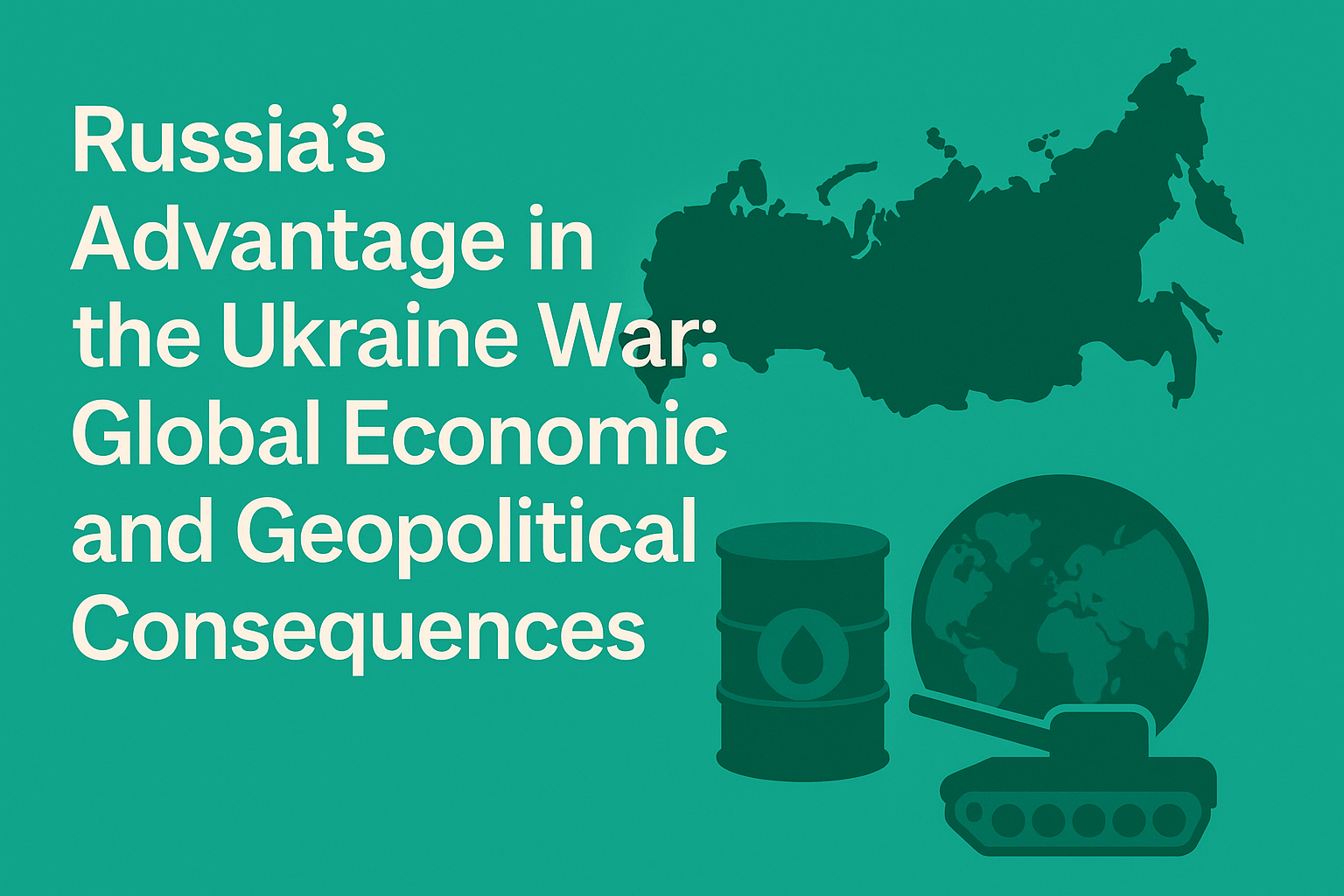— A Strategic Economist’s Report —
1. Introduction
The August 2025 White House summit failed to secure an immediate ceasefire. Instead, the trajectory suggested that negotiations may proceed while Russia retains its battlefield gains. This development shapes a scenario in which Russia sustains a position of relative advantage. The following report explores how such a dynamic would impact global politics and economics.
2. Political Implications
(1) Strategic Divide within the West
- Europe prioritizes an immediate ceasefire, while the United States emphasizes direct negotiations.
- Russia can exploit this divergence to extract favorable concessions during talks.
- NATO’s internal cohesion could weaken, leaving Europe’s security architecture vulnerable.
(2) Global South Perspectives
- Continued Russian advantage may encourage China, India, Middle Eastern, and African nations to deepen ties with Moscow.
- This would accelerate global multipolarity, challenging the U.S.-led unipolar order and emboldening moves away from the dollar-centric system.
3. Economic Implications
(1) Energy Markets
- A prolonged Russian advantage sustains elevated oil and gas prices in Europe.
- Dependency on Russian and Middle Eastern resources deepens, while renewable transition costs increase.
- Result: persistent inflationary pressure in Europe, constraining ECB policy flexibility.
(2) Currency and Financial Markets
- Geopolitical uncertainty maintains the “geopolitical premium” for safe-haven assets: gold, Swiss franc, and Japanese yen.
- U.S. defense stocks and European energy equities attract inflows, driving sectoral bifurcation in valuations.
- Emerging markets face capital outflows under a strong dollar, raising risks of financial instability.
(3) Fiscal and Industrial Effects
- European governments expand deficits through military spending and energy subsidies. Debt sustainability concerns rise, particularly in Italy and France.
- Russia preserves fiscal capacity through resource revenues, enabling it to negotiate from a position of strength.
- The U.S. benefits from defense industry expansion but risks a widening trade deficit and global dollar stress.
4. Long-Term Structural Shifts
(1) Emergence of Bloc Economies
- Two competing blocs solidify: the U.S.–EU–Ukraine defense bloc and the Russia–China–Global South bloc.
- Supply chains for energy, food, and technology increasingly align along bloc lines, deepening economic fragmentation.
(2) Challenge to the International Monetary System
- Russian advantage strengthens momentum for non-dollar trade, using yuan or gold in settlement.
- Middle Eastern and Asian states may diversify away from the dollar in energy transactions, eroding U.S. currency dominance.
(3) Impact on Japan
- Higher energy prices worsen Japan’s trade balance and sustain yen depreciation pressures.
- Yet, the yen still benefits as a safe haven, creating tension between geopolitical demand and economic fundamentals.
- Japanese firms may see opportunities in defense and energy exports, though resource-driven inflation poses risks to domestic stability.
5. Scenario Analysis
- Short-Term (within 1 year)
– Stalemate on the battlefield, stalled peace talks.
– Markets anticipate safe-haven demand, defense sector rallies, energy prices remain high. - Medium-Term (1–3 years)
– Europe’s fiscal stress worsens; political divisions deepen.
– Partial progress in de-dollarization across the Global South. - Long-Term (3+ years)
– A bifurcated world economy becomes entrenched.
– Trade and finance fragment, reducing global efficiency but entrenching resource- and defense-dependent blocs.
6. Conclusion
A sustained Russian advantage would strengthen Moscow’s bargaining position while intensifying Europe’s fiscal and inflationary challenges.
Over the medium term, it risks undermining Western unity and accelerating multipolarity.
Over the long term, it could trigger systemic shifts in the global order: weakening the dollar’s dominance, entrenching bloc economies, and reshaping the foundations of globalization.
From an economist’s perspective, this is not merely the continuation of a war but a catalyst for institutional fragmentation of the global economy.


